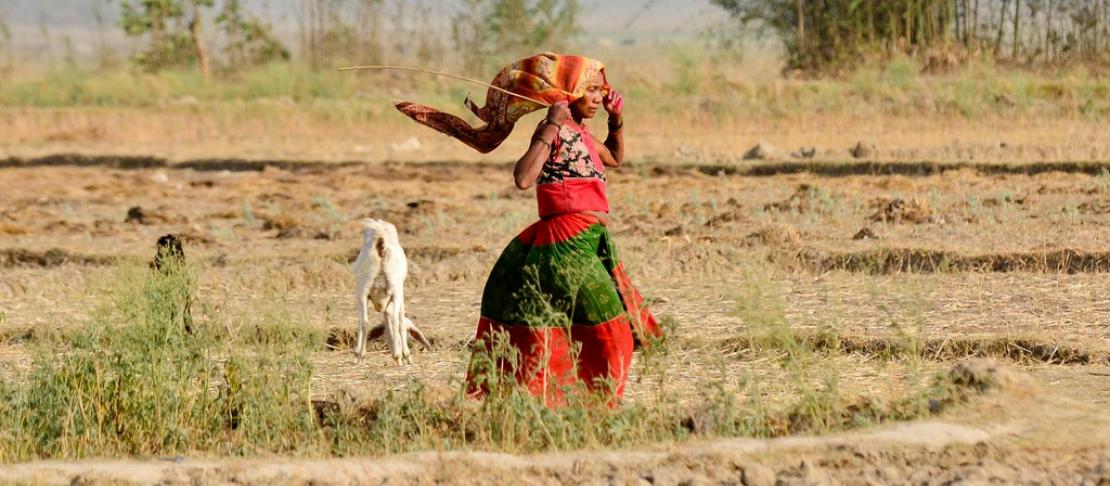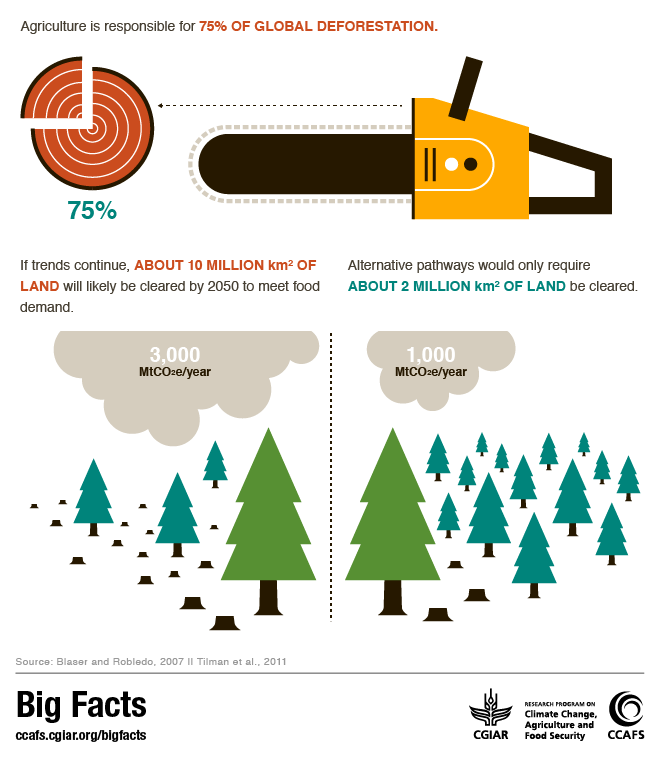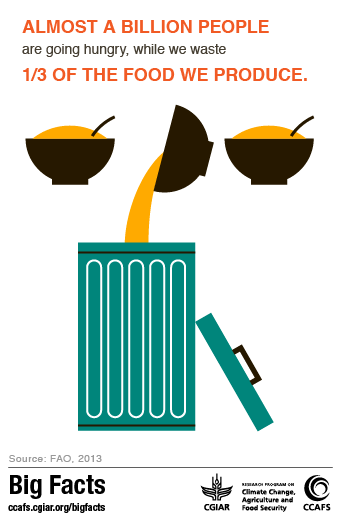Climate-smart agriculture: balancing trade-offs in food systems and ecosystems

In order for agriculture to be climate-smart, there is also the need to be water-smart, landscape-smart, energy-smart, knowledge-smart and gender-smart.
This week marks a very important period in history: world leaders are gathering at the UN Climate Summit in New York while at the same time the United Nations is defining a new set of Sustainable Development Goals (SDGs), which succeed the Millennium Development Goals (MDGs), which expire in 2015. The SDGs will define international development actions post-2015, and will focus on multiple areas including poverty eradication, food security and nutrition, gender equality and women’s empowerment, sustainable consumption and production, climate, and ecosystems and biodiversity.
A number of major international initiatives to tackle climate change are being announced at the summit. Among these is the Global Alliance for Climate-Smart Agriculture, which was being launched by the UN Secretary General today. CGIAR is a founding member of the Alliance, which aims to enable 500 million farmers worldwide to practice climate-smart agriculture, through the collective actions of country governments, international organizations, scientists, businesses, and the civil society. Climate-Smart Agriculture (CSA) offers a way to transform the world food system and achieve three goals: near-term productivity and food security; longer-term resilience and adaptation; and reductions in emissions across landscapes, agriculture and food systems.
However, key issues of the day do not sit in isolation. In order for agriculture to be climate-smart, there is also the need to be water-smart, landscape-smart, energy-smart, knowledge-smart and gender-smart. But how can these objectives be achieved in tandem with achievement of SDGs? This is the theme for discussions at high-level panel session at the CGIAR Development Dialogues, ‘Climate-smart agriculture: balancing trade-offs in food systems and ecosystems’ (click to watch live on 24 September at 14:30 EST). The session is co-organised by CCAFS, and the CGIAR Research Programs on Water Land and Ecosystems (WLE) and Forests, Trees and Agroforestry (FTA)
Synergies and trade-offs
The global transition to a climate-smart world raises many challenges, due to competing priorities among productivity, environmental sustainability, and poverty reduction. But there are also opportunities for achieving multiple objectives. For instance, we know that agriculture remains the major cause of deforestation worldwide. In fact, agriculture is the source of around a quarter of the world’s annual greenhouse gas emissions when you take into account agriculture’s impact on deforestation and with direct agricultural emissions (for example from livestock and fertilizers). The way we farm has impacts beyond forests and climate change: crops and livestock take up about 70% of freshwater withdrawals, even in very dry localities. On the other hand, we all need to eat and – perhaps even more importantly – the majority of poor people in the world continue to depend on agriculture for their livelihoods. The aim for the next 30 years is to grow more food with less. However, meeting growing demands for food, fibre and fuel with a much lighter environmental footprint is a challenge.
Similarly, the SDGs focus on sustainable production and consumption. In the agricultural sector, this means making serious changes on how we consume, and waste, food. Currently about one-third of all food produced is lost in the food supply chain. However, limits on consumption can be a significant challenge in the context of global hunger, when nearly a billion people go hungry. Therefore, achieving synergies between food production, consumption, and reducing wastage is important, and involves integrating multiple focal areas of SDGs.
Role of science in navigating trade-offs
Science can play a crucial role in helping navigate trade-offs, which arise while addressing multiple competing priorities, by transforming trade-offs to win-win situations. There are already examples of this being done. Through the Alternate Wetting and Drying technique, rice farmers are now able to reduce water consumption by up to 30%, methane emissions by 48%, reduce costs association with pumping water, and ensure stable yields. In West Africa, the introduction of the African thresher (ASI), increased the rice processing capacity by six fold, and saves as much as one third of the rice harvest from being lost. By adopting landscape level approaches, we are able to conserve critical ecosystems and use the flow of ecosystem services to improve productivity in agricultural systems.
Major efforts are currently underway to address the knowledge needs for Climate-Smart Agriculture. At the Climate Summit, CGIAR has announced plans to align its research agenda to support the Alliance for Climate-Smart Agriculture (ACSA). This will include strengthening partnerships to deliver ambitious targets; conducting research for impact, including action research with farmers; and allocating at least 60% of its funding towards research that supports climate-smart agriculture in over 90 countries in Asia, Africa, Latin America, and the Pacific. Such investments are crucial in supporting the GACSA’s efforts to enable 500 million farmers to practice CSA practices.
However, investment in science needs to be supplemented by efforts to adopt scientific findings into policy and action at multiple levels, including local, national, regional and international levels. The SDGs and the CSA Alliance offer the opportunity to use scientific findings to address and navigate the trade-offs of transitioning the agricultural sector to meet the climate change challenge.
Follow the CGIAR Development Dialogues webcast on 24 September at dialogues.cgiar.org and on twitter #CGIAR_DD.
Get a full rundown of Climate-Smart Agriculture events at Climate Week NYC and follow updates on our blog and via twitter @cgiarclimate. Learn more about Climate-Smart Agriculture and Climate-Smart Villages.
Dhanush Dinesh is Global Policy Engagement Manager with the CGIAR Research Program on Climate Change, Agriculture and Food Security (CCAFS).


